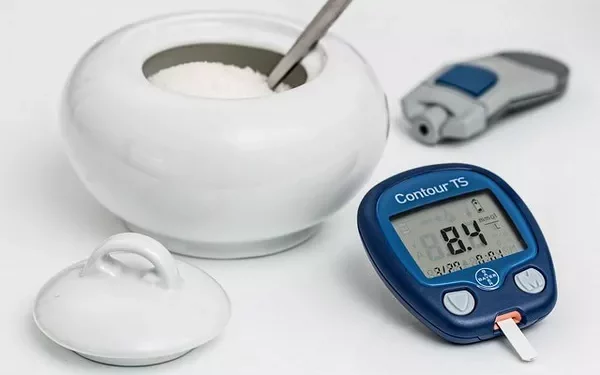Blood sugar, also known as blood glucose, is a crucial indicator of metabolic health. Maintaining a stable blood sugar level is essential for overall well-being, as fluctuations outside the normal range can lead to various health complications. Understanding what constitutes a normal blood sugar rate, how it varies throughout the day, and the factors influencing it is key to preventing diabetes and other metabolic disorders.
Understanding Blood Sugar and Its Importance
Blood sugar is the primary energy source for the body’s cells. It comes from the food we eat and is transported via the bloodstream to provide energy for essential bodily functions. The body regulates blood sugar levels through insulin and glucagon, two hormones produced by the pancreas.
Insulin helps lower blood sugar by enabling cells to absorb glucose for energy or storage.
Glucagon raises blood sugar levels when they are too low by signaling the liver to release stored glucose.
Disruptions in this balance can result in either hyperglycemia (high blood sugar) or hypoglycemia (low blood sugar), both of which can be harmful if not managed properly.
What Is Considered a Normal Blood Sugar Rate?
The normal blood sugar range varies depending on factors such as whether the person is fasting, has just eaten, or is undergoing a glucose tolerance test. Below are the standard reference ranges used by healthcare professionals:
Fasting Blood Sugar (Before Eating, Typically After 8 Hours of Fasting)
Normal: 70–99 mg/dL (3.9–5.5 mmol/L)
Prediabetes: 100–125 mg/dL (5.6–6.9 mmol/L)
Diabetes: 126 mg/dL (7.0 mmol/L) or higher on two separate tests
Fasting blood sugar is one of the most critical indicators of metabolic health. Persistently high fasting blood sugar levels suggest insulin resistance or diabetes.
Postprandial Blood Sugar (1–2 Hours After Eating)
Normal: Below 140 mg/dL (7.8 mmol/L)
Prediabetes: 140–199 mg/dL (7.8–11.0 mmol/L)
Diabetes: 200 mg/dL (11.1 mmol/L) or higher
After eating, blood sugar naturally rises as the body processes carbohydrates. However, in people with diabetes, the increase can be more pronounced and prolonged.
HbA1c (Average Blood Sugar Over 2–3 Months)
Normal: Below 5.7%
Prediabetes: 5.7%–6.4%
Diabetes: 6.5% or higher
The HbA1c test provides a broader picture of blood sugar control over time, reflecting how well glucose levels have been managed.
Random Blood Sugar (Measured at Any Time of the Day)
Normal: Below 140 mg/dL (7.8 mmol/L)
Diabetes: 200 mg/dL (11.1 mmol/L) or higher
A random blood sugar test is often used to diagnose diabetes, especially if symptoms such as excessive thirst, frequent urination, or unexplained weight loss are present.
Factors Affecting Blood Sugar Levels
Diet and Nutrition
Carbohydrates are the primary drivers of blood sugar fluctuations. Simple carbohydrates (e.g., white bread, sugary drinks) cause rapid spikes, while complex carbohydrates (e.g., whole grains, legumes) lead to a slower, more controlled increase.
Protein and healthy fats can help stabilize blood sugar by slowing digestion and glucose absorption. Fiber, found in fruits, vegetables, and whole grains, also plays a crucial role in regulating blood sugar.
Physical Activity
Exercise improves insulin sensitivity and helps muscles absorb glucose more efficiently. Regular physical activity can help lower blood sugar levels and reduce the risk of type 2 diabetes. However, intense workouts can sometimes cause temporary spikes or drops in blood sugar, particularly for individuals with diabetes.
Stress and Hormonal Changes
Stress triggers the release of cortisol and adrenaline, which can raise blood sugar levels. Chronic stress may contribute to insulin resistance. Hormonal fluctuations, such as those occurring during pregnancy or menstruation, can also impact glucose regulation.
Sleep and Circadian Rhythms
Poor sleep quality and irregular sleep patterns can lead to insulin resistance and higher fasting blood sugar levels. Maintaining a consistent sleep schedule and getting at least 7–8 hours of sleep per night can improve metabolic health.
Medications and Medical Conditions
Certain medications, including steroids, beta-blockers, and some antidepressants, can affect blood sugar levels. Additionally, conditions such as polycystic ovary syndrome (PCOS) and thyroid disorders can impact glucose metabolism.
Why Monitoring Blood Sugar Is Essential
For Individuals With Diabetes
Regular blood sugar monitoring helps individuals with diabetes manage their condition and avoid complications such as neuropathy, kidney disease, and cardiovascular issues. Continuous glucose monitors (CGMs) and traditional fingerstick tests provide valuable insights into blood sugar patterns.
For Those at Risk of Diabetes
People with prediabetes or a family history of diabetes should monitor their blood sugar levels periodically. Lifestyle interventions, such as diet and exercise, can significantly reduce the risk of developing type 2 diabetes.
For Overall Health and Longevity
Even in individuals without diabetes, consistently high blood sugar levels can contribute to aging, inflammation, and chronic disease risk. Maintaining blood sugar within a healthy range promotes long-term well-being.
How to Maintain Healthy Blood Sugar Levels
1. Adopt a Balanced Diet
-
Focus on whole foods, including lean proteins, healthy fats, and fiber-rich carbohydrates.
-
Avoid refined sugars and processed foods.
-
Stay hydrated with water and limit sugary beverages.
2. Engage in Regular Exercise
-
Incorporate at least 150 minutes of moderate-intensity exercise per week.
-
Strength training can improve insulin sensitivity.
-
Walking after meals can help regulate postprandial blood sugar.
3. Manage Stress Effectively
-
Practice mindfulness, meditation, or deep breathing exercises.
-
Engage in hobbies or activities that promote relaxation.
4. Prioritize Sleep
-
Aim for 7–9 hours of quality sleep per night.
-
Maintain a consistent sleep schedule.
5. Monitor Blood Sugar Regularly
-
Use a glucose meter or continuous glucose monitor if necessary.
-
Keep track of patterns and discuss them with a healthcare provider.
Conclusion
A normal blood sugar rate is vital for overall health, and understanding its fluctuations can help prevent serious conditions such as diabetes and metabolic syndrome. Regular monitoring, a healthy diet, physical activity, stress management, and proper sleep hygiene all contribute to optimal blood sugar control. By making informed lifestyle choices, individuals can maintain stable blood sugar levels and promote long-term well-being.
Related topics:



























